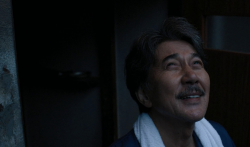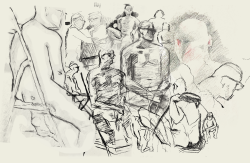As the industrial skyline of my beloved hometown, Milwaukee, Wisc., faded from view, I felt ready. The three-hour flight to Reagan passed quickly. I pretended to read until I could see the first twists of the Potomac out the window. Then came the gothic spires of Georgetown, the townhouses, the government buildings, and as the plane tilted—there it was, the Washington Monument, its polished surface proudly proclaiming a successful democracy with liberty and justice for all.
I, like many bright-eyed high school seniors, chose Washington D.C. as the place where I’d spend my formative college years. Mark Leibovich’s lengthily-titled new book This Town: Two Parties and a Funeral–Plus Plenty of Valet Parking!–In America’s Gilded Capital is an exposé of politics and media in D.C. that’s bound to shatter the naïveté of new Hoyas impatient for Hillternships. It shows our town—“The Club”—at its best and its worst. Well, mostly at its worst. If you’re new to the cynicism game, come prepared.
Leibovich tells us that D.C. has become the stomping ground of the power- and money-hungry, and the rest of the city—from Columbia Heights to Wards 7 and 8 across the Anacostia—is irrelevant. As Leibovich says, “That’s just the D.C. where people live, some of them (18.7 percent) even below the poverty line … Yes, Washington is a “real city”, but This Town is a state of belonging, a status and a commodity.”
This Town differs from other modern political assessments. It lacks the issue-aware comedy of Jon Stewart and Colbert, but it is fairer in analyzing both parties evenly. It is much more lighthearted than House of Cards or other intense political dramas. This Town feels more like a tabloid appraisal of all those who “belong” enough to be critiqued. Based on the media uproar the book has caused in D.C., it seems that the only thing worse than being reproached by Leibovich is not being mentioned at all. In fact, he proudly refuses to include a glossary in order to force name-conscious Washingtonians to actually search for their mention.
Of Washington media, Leibovich admits, “Vintage square rooms have given way to light-headed news cycles and public servants have graduated into killer personal franchises.” No franchise in politics sells more quickly than going rogue, and Leibovich is portrayed as the Palin of White House reporters. But he is no more a rogue than he is a full-fledged member of the club he writes about.
Leibovich worked as a political reporter for the Washington Post’s style section, where he shined while writing lines like “U2’s “Beautiful Day” blared over loudspeakers, sputtering out for a few nervous seconds before recovering. Mr. Obama’s too-long blue tie went nicely with Mrs. Clinton’s blue pantsuit.” He now writes political profiles for The New York Times and has settled his family just outside of the capital.
Though supposedly chronological, This Town jumps from the life story of a talking head to a prized politician to a top journalist as though Leibovich were making the rounds of a packed room. The content is anecdotal—it is in essence the diary of an elite D.C. party hopper.
You would be right to guess that the Washington elite is upset that the whispers at their exclusive parties have gone public. Lois Romano expressed her dismay in Politico, writing that Leibovich has been “exploiting his access to parties” and breaking “unwritten guidelines … about what’s fair game—and what’s a cheap shot” by including inflammatory quotes from events he attended as a guest. Yet none of Leibovich’s collected quotes are real shockers. It’s general consensus that sometimes, politicians just say the darndest things.
The bigger message of This Town, if you can sift through the People Magazine-like diatribes, is the monetization of public service. Leibovich lets us know just how fast the revolving door between political office and lobbying on K Street spins. Even President Obama, who vowed to cut out lobbyists from his administration, has succumbed to the system—in order to win, he had no other choice.
The ultimate sad joke, according to Leibovich? That “D.C. is predicated on perpetuation of problems … not solving them … Washington may not serve the country well but has in fact worked splendidly for Washington itself—a city of beautifully busy people constantly writing the story of their own lives.”
I still haven’t had a Hillternship, but I have grown less starry-eyed in the presence of political power. I’m a little sick of the he-said, she-said, celebrity column style of political journalism that Leibovich continues to use. But I perpetuate this cult adoration of public figures by lining up for hours when Hillary makes a pit-stop in Gaston or by taking selfies with Joe Biden when he stops at Dahlgren for mass. I participate. And that’s not always bad. Because these people are not Hollywood starlets, they are decision makers. I hold out hope that their important decisions—the ones we elect them for—are more influenced by political than monetary values. The Washington monument can remind them, too, of liberty and justice for all—and a happy retirement package from K Street.




